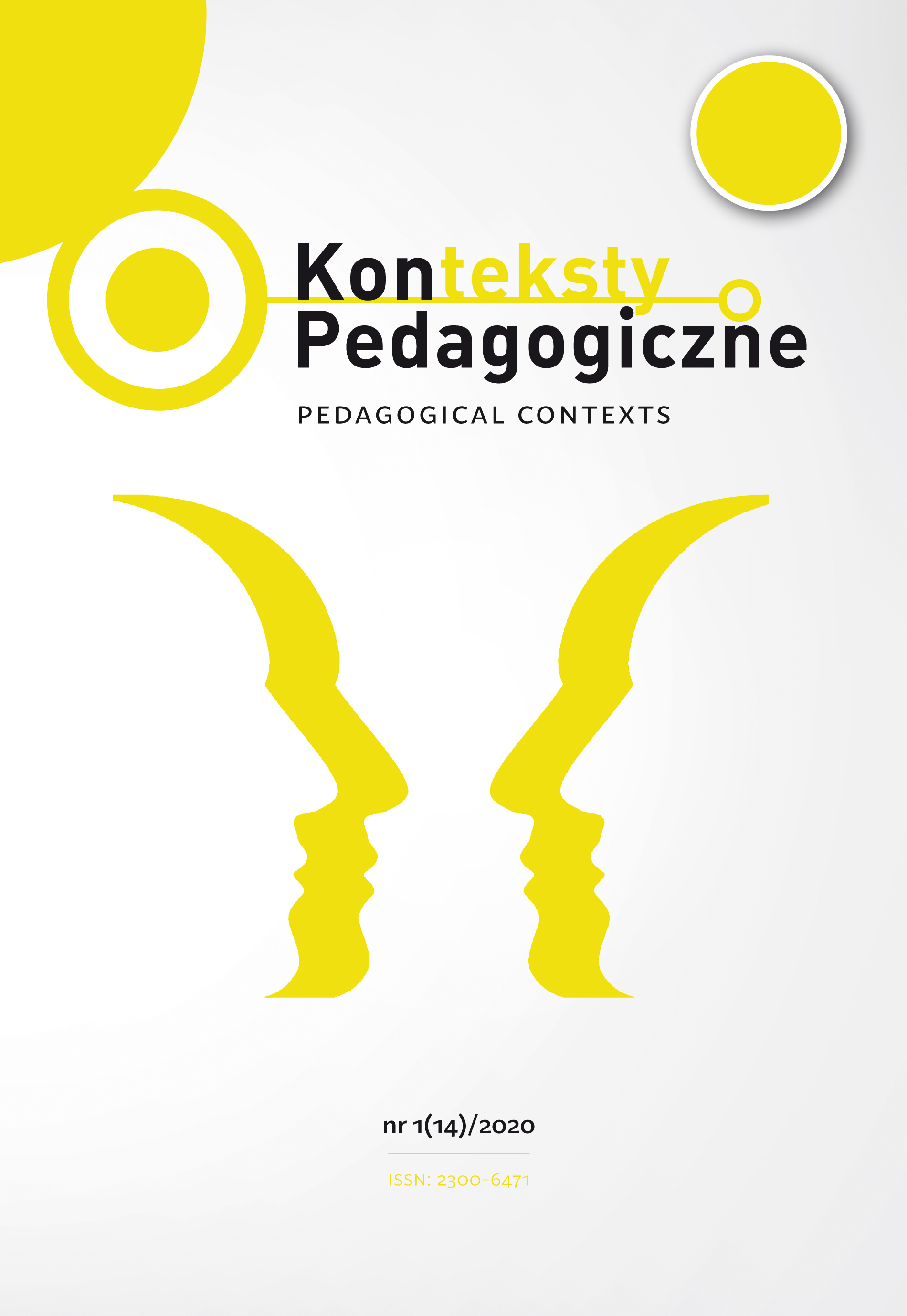Abstract
The article presents the study of the influence of network communication on the development of communicative competence in the native language of schoolchildren in the Ukrainian social network environment. It has been verified statistically that the use of English is quite common in the everyday discourse of the higher grade students (ninth through eleventh grades), with the number of English words integrated in their communication in Ukrainian rising with the age of the students. The ways of such integration (anglicism adaptation mechanisms) have been defined (neoderivatives, neoborrowings, neosemanticisms) based on the analysis of Telegram chats of students of the ninth, tenth and eleventh grades.
It has also been proved that students do not tend to apply a conscious approach to the use of English words, and thus, when informed of the necessity to preserve the purity of their mother tongue, resume to the choice of Ukrainian words avoiding unnecessary use of English. Specific pedagogical procedures help the students be aware of their communicative competence development in relation to the use of foreign words in their social network interactions.
References
Baron, N.C. (2008). Always on: Language in an Online and Mobile World. Oxford: Oxford University Press.
Christison, M. & Murray, D. (2014). What English Language Teachers Need to Know, Vol 3. New York: Routledge.
Crystal, D. (2011). Internet Linguistics: A Student Guide. New York: Routledge.
Danet, B. (2001). Cyberpl@y: Communicating online. Oxford: Berg Publishers.
Davies, S. (2016). How Has Social Media Changed Language? https://socialnomics. net/2016/10/27/how-has-social-media-changed-language/ [accessed: 4.01.2020].
Ellison, N.B. & Boyd, D. (2013). Sociality through Social Network Sites. In: W.H. Dutton (ed.), The Oxford Handbook of Internet Studies (pp. 151–172). Oxford: Oxford University Press.
Fuchs, C. (2008). Internet and Society: Social Theory in the Information Age. New York: Routledge.
Lantz-Andersson, A. (2017). Language play in a second language: Social media as contexts for emerging Sociopragmatic competence. Education and Information Technologies, 2017, https://doi.org/10.1007/s10639-017-9631-0.
Kaptiurova, V.V. (2011). Leksychni osoblyvosti povidomlen u Twitter [Lexical peculiarities of messages in Twitter]. Мовні і концептуальні картини світу, 33, 228–232.
Kaptiurova, V.V. (2013). Osoblyvosti komunikatsii v anglijskomu, rosijskomu ta ukrainskomu prostori sotsialnych merezh [Peculiarities of communication in English, Russian and Ukrainian social networks]. Мовні і концептуальні картини світу, 46(2), 63–72.
Kyrylova, І.P. (2013). Osoblyvosti anglitsyzmiv u suchasnych nimetskii ta ukrainskii movach [Peculiarities of anglicisms in modern German and Ukrainian languages]. Мовні і концептуальні картини світу, 43(2), 174–181.
Kompantseva, L.F. (2007). Internet-komunikatsiya: kognityvno-pragmatychnyi ta lingvokulturolohichnyi aspekty [Internet-communication: Cognitive-pragmatic and linguocultural aspects]. Dissertation abstract. Kyiv: Institute of Linguistics named after О.О. Potebnia.
Rachmatullina, S. (2009). Yazykovaya igra v rossijskoi blogosfierie [Language play in Russian blogging], http://www.philol.msu.ru/~slavmir2009/data/12.pdf [accessed: 4.01.2020].
Shpytalnyi, V. (2016). Vykorystannia ukrainskoi movy v sotsialnych merezhach [The use of Ukrainian in social networks]. Kharkiv: NTU “KhPI”.
In accordance with the recommendation of the Ministry of Science and Higher Education, which aims to counteract the practice of “ghostwriting” and “guest authorship,” all authors submitting their text for publication should attach an author’s statement which declares the contribution of each of the authors to the article. The printed and signed statement should be delivered by mail or other means to editor-in-chief Joanna Skibska or sent in the form of a scan to the following e-mail address: redakcja@kontekstypedagogczne.pl. The authors will not receive remuneration for publishing their papers. The editors reserve the right to make minor editorial changes to the articles which will not affect the substance of the article. We encourage all authors to prepare their articles in accordance with the guidelines for manuscript preparation. Download pdf file.
Authors transfer all copyrights and grant the journal the right of first publication with the work simultaneously licensed under a Creative Commons Attribution License that allows others to share the work with acknowledgement of the work's authorship and initial publication in this journal. All authors agree to the publishing of their email addresses, affiliations and short bio statements with their articles during the submission process.

